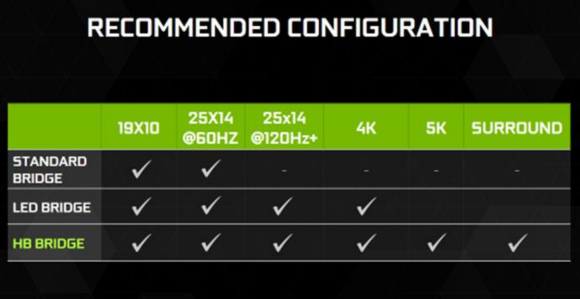And slaughter your bank balance too

. Money spent and it's return drives our behaviour, unless your rolling in it.
Think of it like this with some arbitrary Made Up Scale, if performance was directly proportional the number of GPUs installed:
1x 980Ti - 1000mus
2x 980Ti - 2000mus
So in the utopian world I buy some more second hand 980Tis:
3x 980Ti - 3000mus (£300)
4x 980Ti - 4000mus (£300)
Compared to new gen, assuming that the 1080 is 20% greater than a 980Ti:
1x 1080 - 1200mus (£620)
So, as the owner of 2x 980Tis with a performance of 2000mus I have a few options:
A. Sell the two 980Tis for £600, add another £20 and buy a single 1080 for a significant downgrade.
B. Sell the two 980Tis for £600, add another £640 to buy two 1080s for a performance bump of 400mus (less than 2.5x 980Tis).
C. Buy a second hand 980Ti for £300 for a big performance bump.
D. Buy two second hand 980Tis for £600 for a major performance bump
In summary, spend £600 for 4000mus or sell up and spend £1240 (£640 net) for 2400mus. I know what I'd do.
Thus the second hand market would improve, people would hold on to their existing cards for longer and sales of new GPUs would drop as would their price to entice buyers.
Now, remember this utopian, so 4 way sli scales perfectly every time, every game. In the real world it's the exact opposite, hell sometimes running 3 or 4 GPUs degrades performance! This currently works as a deterrent except to the hardcore few.
If an API was created that enabled DPS (Directly Proportional Scaling, quick, trademark it

!) it would change the market in my opinion.



